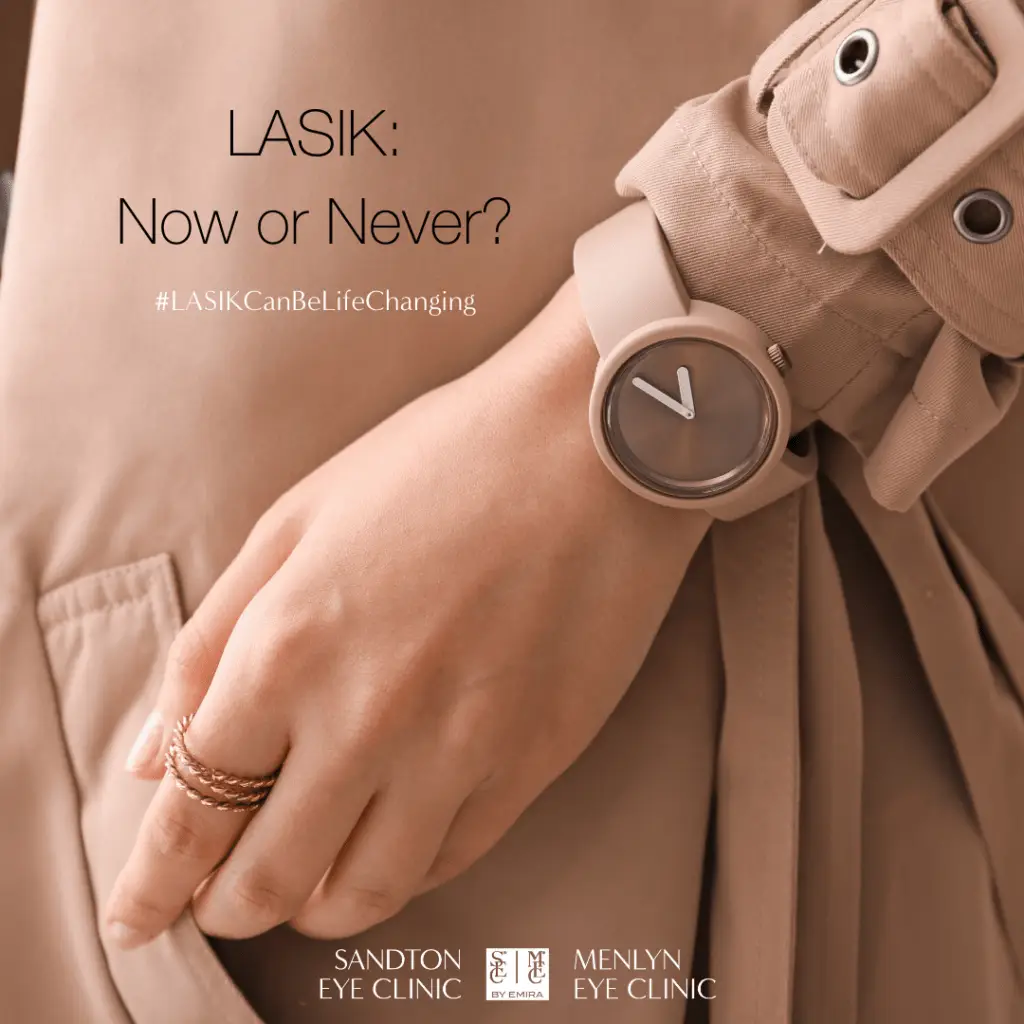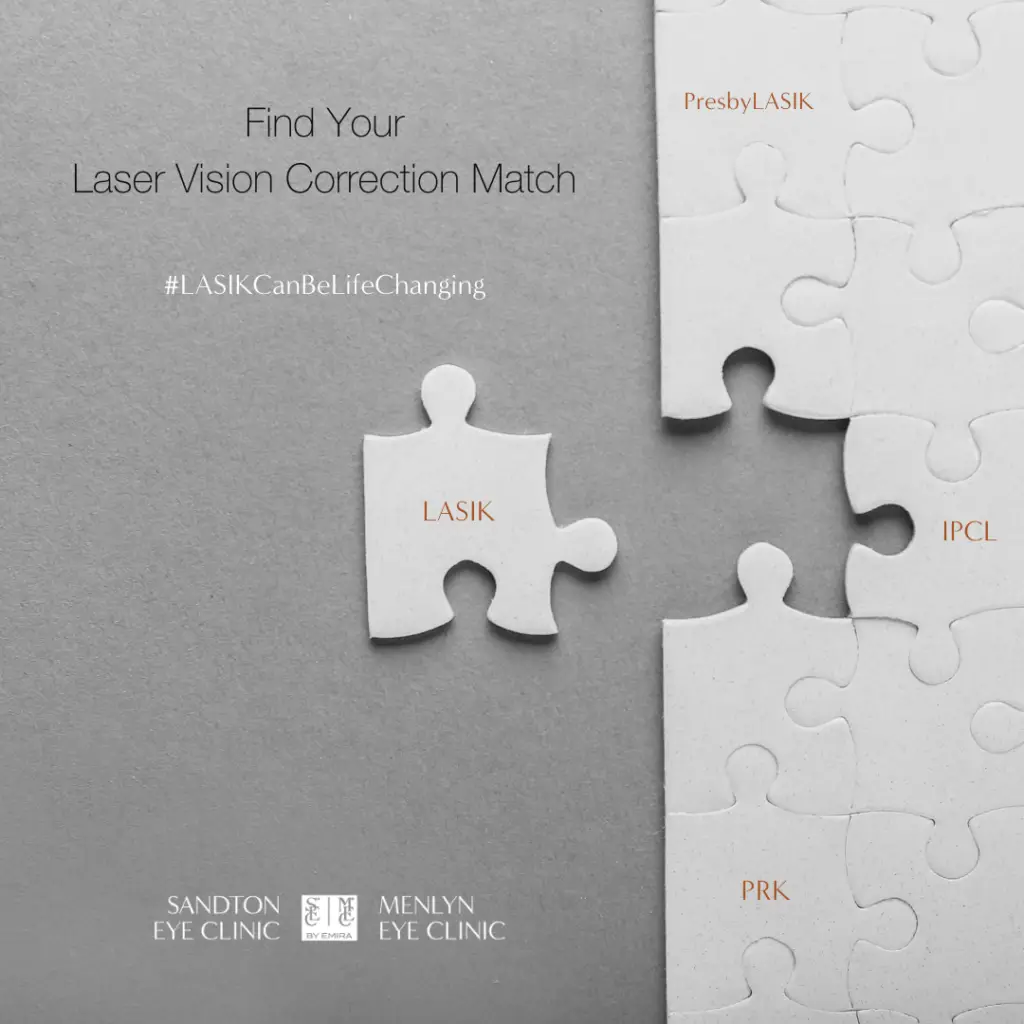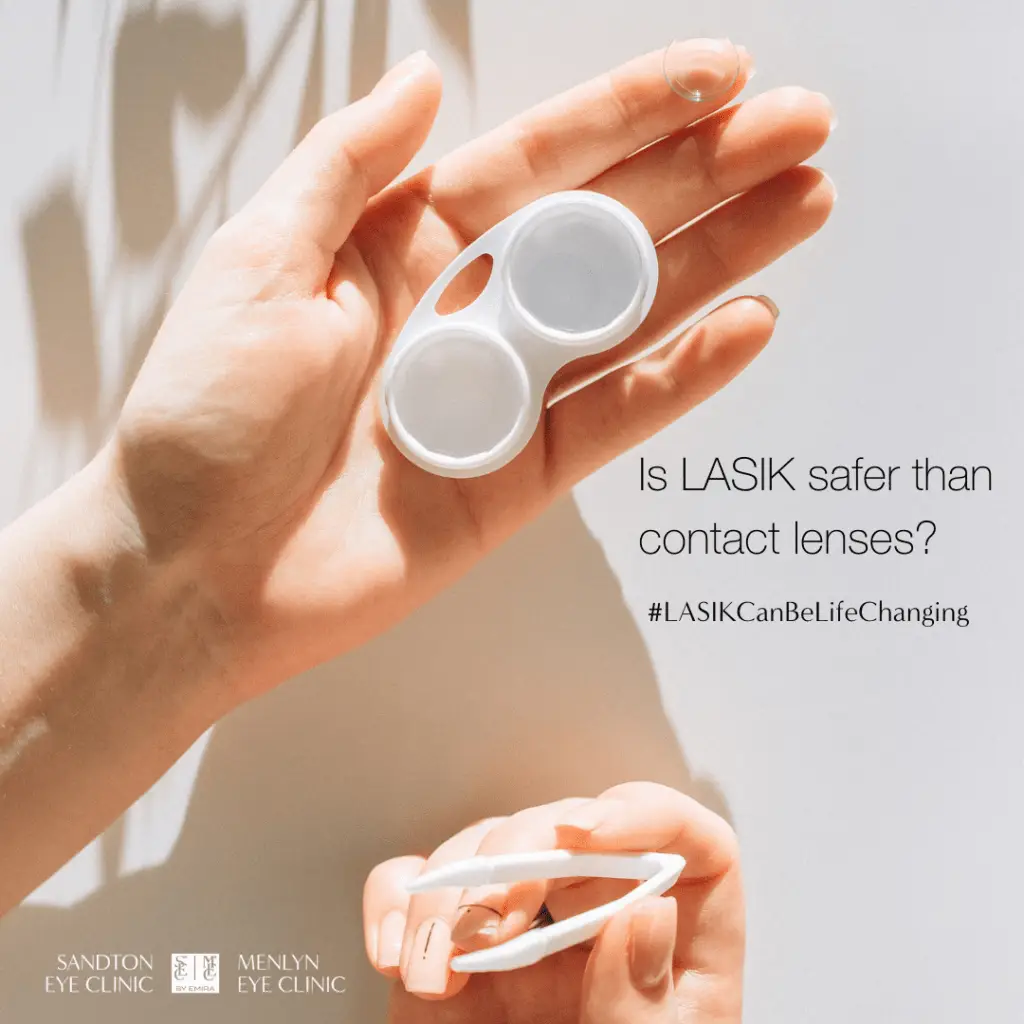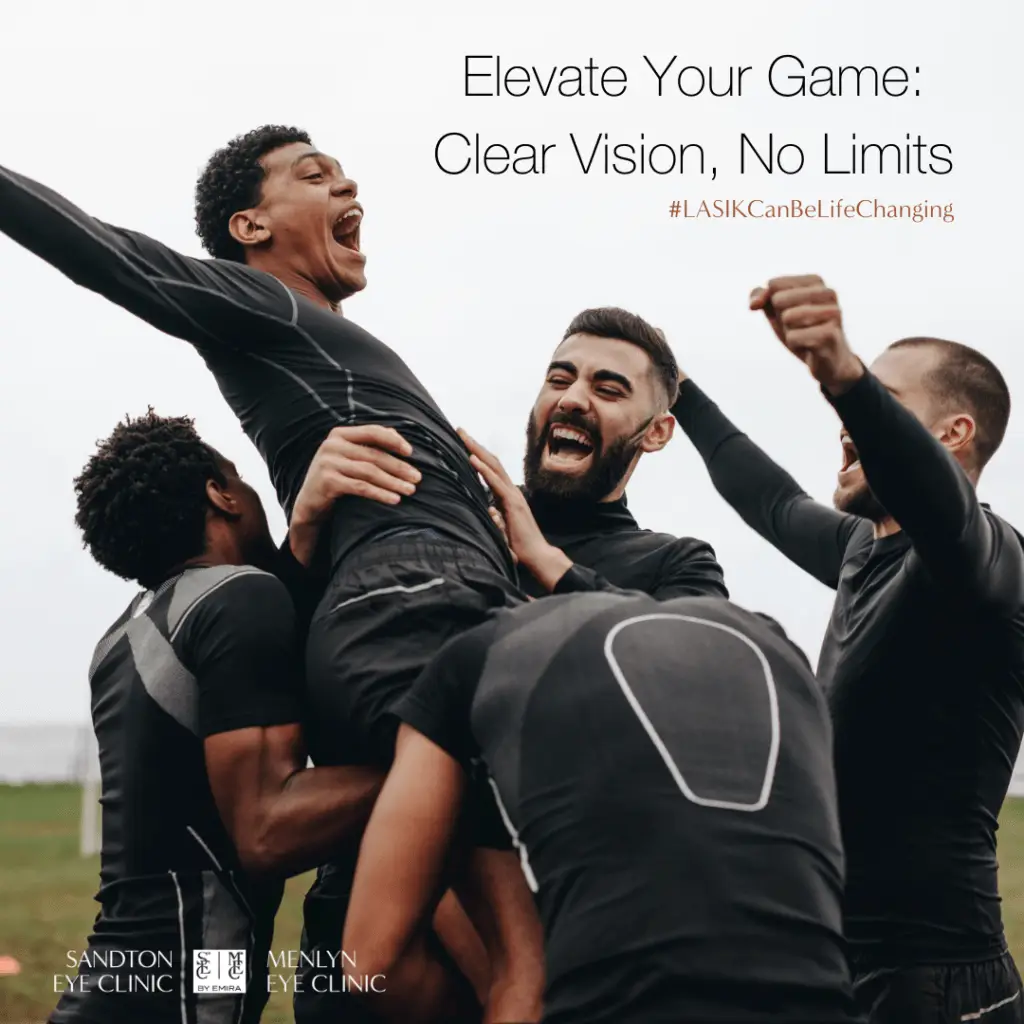5 Considerations to keep in mind with lasik eye surgery
Have you ever imagined waking up and seeing everything clearly without fumbling for your glasses on your bedside table. If the prospect excites you, LASIK might be the life changing event you’ve been seeking. If you’ve embraced the idea of wearing glasses and find joy in that choice, LASIK may not be the path for you. However, for those intrigued by the possibility of visual freedom, read on.
Widely regarded as one of the safest and most effective elective outpatient procedures, LASIK has transformed the lives of over 30 million individuals worldwide. It Is also the most studied elective procedure in all of medicine. In the United States it boasts a satisfaction rate of 98% to 99%. Notably, vision correction surgeons themselves undergo LASIK at a rate four times higher than the general population, underscoring their confidence in the procedure. Join us as we delve into everything you need to know about LASIK before meeting your refractive surgeon.
1. When is the best time to have LASIK?
The optimal time for LASIK is ideally at age 18, ensuring a lifetime of clear, effortless vision and maximum improvement in quality of life. By undergoing the procedure at this age, you not only enjoy long-term visual benefits but also significant savings on glasses and contact lenses.
However, if you missed this window, don’t despair. Even at 45, whether you’ve worn glasses for years or recently started needing readers, there’s still an opportunity for clear vision. PresbyLASIK can address your vision needs, eliminating the reliance on reading glasses and providing lasting results until cataracts typically develop between ages 55 and 65.
Cataract surgery with a premium lens presents another chance for spectacle independence, correcting vision for all distances and ensuring clear sight well into old age. Remember, the best time to pursue LASIK or vision correction may have been in the past, but the next best time is now, reclaiming your visual freedom and enhancing your quality of life.

2. What if I am not a candidate for LASIK?
If LASIK isn’t suitable for you, don’t worry—there are still several other effective options available in the realm of vision correction. While LASIK remains the gold standard in laser vision correction due to its widespread success and rapid recovery, alternative procedures exist to address specific needs. PRK, for instance, serves as a viable alternative for individuals with thin corneas or corneal scarring.
Although recovery time is longer compared to LASIK, PRK offers comparable long-term visual outcomes and can address fine irregularities that may not be corrected by traditional glasses or contacts. A Secondary lens is a special kind of lens that is implanted surgically into the eye to correct refractive errors. The eye’s natural lens is left untouched. It is almost like a permanent contact lens being implanted in the eye.
These implantable lenses act as a permanent correction for high refractive errors, offering a similar outcome to LASIK or PRK but with distinct advantages for specific patient profiles.
If you are around 45 and need reading glasses the above surgical options can also offer presbyopia correction in addition to correcting other refractive errors. Your natural lens can also be replaced with a multifocal lens. This is called refractive lens exchange. As cataracts typically develop around age 65, cataract surgery presents another opportunity for vision enhancement. With the option to implant multifocal lenses during this procedure, individuals can maintain spectacle independence and enjoy clear vision across various distances well into their golden years.
While LASIK may not be suitable for everyone, rest assured that a range of alternative treatments exists to address your specific vision needs, offering lasting benefits and improving your overall quality of life.

3. Is LASIK safer than contact lenses?
When comparing the safety of LASIK to contact lenses, both options are generally considered low risk. However, if you’re a contact lens wearer experiencing recurrent eye infections, LASIK may offer a safer alternative. Studies have demonstrated that contact lens wearers face a tenfold higher risk of sight threatening corneal infections compared to those undergoing LASIK eye surgery. Under the care of an experienced surgeon and through rigorous screening processes, LASIK boasts a high success rate with minimal complications. Unlike issues stemming from long-term contact lens use, which can accumulate over years, any potential complications from LASIK typically occur within a brief timeframe and under a controlled environment.
If you find yourself experiencing eye discomfort while wearing contact lenses, the common assumption of “dry eyes” may not always be accurate. Soft contact lenses have a tendency to absorb tears, leading to sensations of itchiness or grittiness, which may be misinterpreted as dryness. However, research comparing dry eye symptoms in contact lens wearers versus those who opt for LASIK reveals similar symptoms after one year, with LASIK patients showing improved outcomes over the long term. LASIK also dramatically improves the ease of night driving not only for [former] contact lens wearers but also for those who wore glasses.
In summary, while both LASIK and contact lenses are viable options for vision correction, LASIK may offer a safer and more convenient alternative, particularly for those experiencing complications with contact lens use.

4. Can I participate in sports after LASIK?
For many individuals, the desire to engage in athletic activities without the hindrance of glasses or contact lenses serves as a primary motivator for considering refractive surgery like LASIK. There are several compelling reasons why athletes opt for LASIK. Improved reaction time and depth perception, crucial elements for many sports and athletic endeavours. Enhanced Contrast Perception allowing athletes to discern objects and terrain more clearly, particularly in dynamic environments. Restoration of normal vision enhances overall performance and enjoyment of sports. Endurance in extreme environments withstanding the rigors of extreme environments, such as harsh weather conditions or high-altitude settings, without the need for corrective eyewear. With a relatively short recovery period, LASIK allows athletes to return to their training and competitions swiftly, minimizing disruptions to their active lifestyles.
It’s important to note that after LASIK, individuals are advised to refrain from swimming for about one month to ensure proper healing. However, considering the overall benefits for athletic performance, this temporary limitation is often outweighed by the long-term advantages of LASIK.
While glasses may seem like the lowest risk option, especially for individuals not prioritizing sports, for those who lead active lifestyles and crave adventure, the potential risks associated with relying on glasses or contacts during athletic activities may outweigh the minimal risks of LASIK. Ultimately, LASIK empowers athletes to pursue their passions with confidence and clarity, free from the constraints of corrective eyewear.

How to choose a refractive surgeon?
Selecting a refractive surgeon is akin to choosing a master artisan for a bespoke timepiece – it requires a blend of meticulous precision, artistry, and unwavering commitment to excellence. For a true refractive surgeon, it is not only a form of responsibility, but also a kind of pleasure and an instrument of compassion.
Embarking on this journey begins with thorough research. Invest time in scrutinizing refractive surgeons in your vicinity. Evaluate their credentials, including their training, the volume of laser eye surgeries they have performed, and their track record of success in delivering optimal visual outcomes. Equally important are patient testimonials, offering first-hand insights into the surgeon’s expertise and bedside manner.
If the prospect of reclaiming clear vision exhilarates you, take the initiative to consult with a refractive surgeon. Through this initial meeting, you can explore your options and gain a deeper understanding of the surgical process, empowering you to make an informed decision about your vision correction journey.
Like this article, share with your friends below:
Disclaimer
Laser Vision Correction Costs 14 February – 30 April 2024
👩🏽⚕️👨🏻⚕️👩🏻⚕️Consultation at Discovery Classic Direct Rates Max R4 300
Procedure Cost:
👁️LASIK | PRK R29 000 | 🔎PresbyLASIK R35 000
🗓️Post Procedure Follow-Ups: No Charge
⏳🗓️3 Month Follow Up: R 1 500
💰 We offer MediWallet & ZeroPay as medical financing options.
Disclaimer: Glasses are safe because there is no medical procedure involved. If you are happy to wear glasses LASIK is not for you. LASIK is a lifestyle procedure providing unaided vision. According to research the cumulative risk of contact lenses may be more than LASIK. Three-Year Longitudinal Survey Comparing Visual Satisfaction with LASIK and Contact Lenses https://pubmed.ncbi.nlm.nih.gov/27208981/

